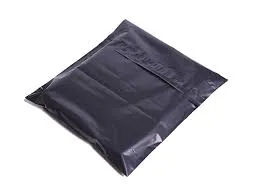Advantages of Using Powder-Free Disposable Gloves in Various Industries
The Importance of Powder-Free Disposable Gloves in Modern Hygiene Practices
In recent years, disposable gloves have become a vital component in various industries, particularly in healthcare, food service, and cleaning. Among these, powder-free disposable gloves are gaining prominence due to their unique benefits and applications. This article delves into the significance of powder-free disposable gloves, highlighting their advantages over their powdered counterparts, and their essential role in maintaining hygiene standards.
Understanding Powder-Free Disposable Gloves
Powder-free disposable gloves are typically made from materials such as latex, nitrile, or vinyl, devoid of any powdered additives that were traditionally used to facilitate easy donning. In various settings, gloves are worn to prevent contamination and provide protection against harmful substances, pathogens, and irritants. The removal of powder offers several advantages, especially in sensitive environments like healthcare and food handling.
Health and Safety Benefits
One of the most significant advantages of powder-free gloves is the reduction of allergic reactions. Powdered gloves often contain cornstarch powder intended to make them easier to put on; however, this substance can cause respiratory issues and skin irritation for both the wearer and patients. Powder-free gloves eliminate this risk, making them safer for use in environments where allergies could pose severe health risks.
Furthermore, in medical settings, powdered gloves can leave residual particles on the skin or in open wounds, potentially leading to infections. Powder-free gloves minimize this risk, ensuring that surfaces remain uncontaminated and that patients are protected from unnecessary complications.
Enhanced Comfort and Grip
Another notable feature of powder-free disposable gloves is the improved fit and dexterity they provide. Many users find that powder-free alternatives, particularly those made from nitrile or latex, offer better elasticity and tactile sensitivity compared to powdered gloves. The absence of powder also means that there is no grittiness, which can detract from comfort, especially during extended wear.
powder free disposable gloves

Moreover, modern powder-free gloves often come with texturization on the fingers and palms, enhancing grip and control. This is particularly beneficial for professionals in the medical field who need precision when handling instruments or conducting delicate procedures, as well as for those in food service where maintaining a firm grip can prevent accidents.
Environmental Considerations
Sustainability is growing in importance across all industries, and the choice of disposable gloves is no exception. Many manufacturers are now producing powder-free gloves using eco-friendlier materials and processes, minimizing their environmental impact. By choosing powder-free options, organizations can align themselves with conscious consumerism while ensuring that they meet health and safety standards.
Versatility Across Industries
Powder-free disposable gloves are not just limited to healthcare; they are widely used across various sectors. In food handling, these gloves ensure that the risk of contamination from allergens and bacteria is kept to a minimum. For cleaners and industrial workers, powder-free gloves provide barriers against chemicals and grime while promoting hygiene.
In the beauty and personal care industries, these gloves are essential. Whether in salons or spas, professionals rely on powder-free gloves to maintain cleanliness, especially during procedures involving skin contact.
Conclusion
In conclusion, powder-free disposable gloves serve an essential role in upholding hygiene standards across multiple sectors. Their benefits—including reduced allergic reactions, enhanced comfort, improved grip, and environmental considerations—make them a preferred choice for many professionals. As industries evolve and the demand for safer, more effective hygiene solutions increases, powder-free disposable gloves are likely to remain a key component in safeguarding health and promoting cleanliness in both everyday and specialized settings. Adopting these gloves is not just a matter of compliance; it is a commitment to health, safety, and environmental responsibility in our modern world.
-
The Best Uses for Small Trash Bags in Daily LifeNewsJul.01,2025
-
Stylish Reusable Grocery Bags TrendsNewsJul.01,2025
-
Shipping Advantages of Using Bubble Envelopes BulkNewsJul.01,2025
-
How Compostable Mailing Bags Reduce Environmental ImpactNewsJul.01,2025
-
Environmentally - Friendly Bulk Poly MailersNewsJul.01,2025
-
Eco Friendly Custom Laminated Tote BagsNewsJul.01,2025
-
Have the freedom of customizing your custom mailers any way you want! Our dedicated packaging support will help deliver you the mailing experience you need to elevate your shipping experience to the next level! Start making a strong impression on your customers and stand out from your competitors! -
LIYA uses high quality raw materials which directly purchased from large enterprises domestic and overseas such as PetroChina, Sinopec, Sabic, Equate, ExxonMobil, Dow Chemical, Total, and Borouge, ensuring the price advantage and quality of the raw materials. -
LIYA uses high quality raw materials which directly purchased from large enterprises domestic and overseas such as PetroChina, Sinopec, Sabic, Equate, ExxonMobil, Dow Chemical, Total, and Borouge, ensuring the price advantage and quality of the raw materials.





